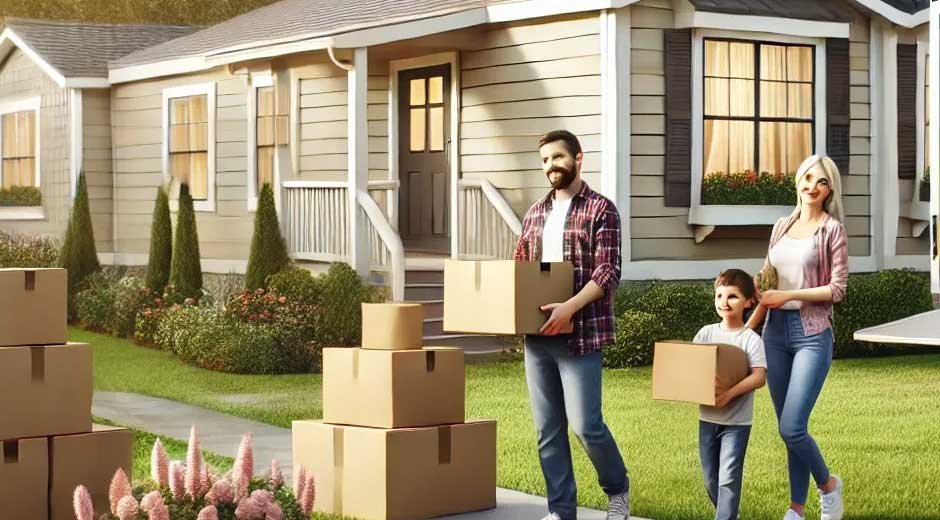Are you thinking of buying a single wide house? Smart move! These compact homes pack a punch in affordability and charm.
But before you dive in, there are some key things to consider. From checking the structure’s condition to ensuring it’s parked on the perfect plot, every detail counts.
Financing can be a little different, too-so you’ll want to know your options. Plus, don’t forget to factor in utilities, maintenance, and upgrades.
Ready to roll? Let’s break down what you need to know for a savvy purchase!
Contents
1. Initial Cost
The cost of a single-wide house is more than just the sticker price. Sure, these homes are budget-friendly but don’t forget the extras. You’ll need to factor in the cost of the land if it’s not included because homes don’t float.
Then there’s delivery and setup, which can vary depending on location. If you’re planning to customize, those upgrades can add up quickly. And don’t skip checking for hidden fees, like permits or site prep costs.
The key is knowing your numbers before you buy, so you can enjoy your new home without breaking the bank.
2. Lot Placement
Where you place your single-wide house is as important as the house itself. First, think about the location, you dreaming of a quiet countryside spot or a bustling community?
Next, check the lot size. You’ll need enough room for your home, utilities, and maybe even a little yard space. Is the land zoned for a single-wide? That’s a must!
Don’t overlook utilities like water, electricity, and sewer hookups-they’re not always a given. Accessibility is key, too! You’ll want smooth delivery and easy access for you and your visitors.
Lastly, keep an eye on the view because why not wake up to something you love every day? Whether rolling hills, a sparkling lake, or a cozy neighborhood, the right view can make your new home feel extra special!
3. Square Footage
Size matters when it comes to your new house. Start by thinking about your lifestyle and how much space you need.
Single-wides typically range from cozy 400-square-foot layouts to roomy 1,200-square-foot options. You need to decide what works best for you, whether you want an open floor plan or separate rooms for privacy.
Think storage, too! Will there be enough closets and cabinets for all your stuff? Also, don’t forget the little details, like kitchen size if you love cooking or space for a comfy couch if binge-watching is your thing.
Bigger might not always be better, so find the sweet spot that fits your needs and budget.
4. Potential Renovation
Before buying, look at what might need fixing or upgrading. Is the flooring a little wobbly, or are the walls crying out for a fresh coat of paint?
In addition, check the kitchen and bathroom. Are they modern and functional, or ready for a makeover? Don’t forget the roof and windows; keeping things weather-tight is a priority.
Renovations are your chance to add personal flair, but be sure to budget for them! Whether it’s adding trendy finishes or knocking down a wall for more space, the possibilities are endless.
Plan wisely, and you’ll make this house truly yours!
5. Quality of Construction
You want a home that’s built to last, not one that’s going to give you headaches. Start by checking the materials-sturdy frames and good insulation are a must.
Look for solid craftsmanship, like well-fitted windows and durable floors. Don’t be shy about asking questions: who built it, and what’s their reputation? Some single-wides, like these mobile homes in Marion County, FL, are known for top-notch quality, so keep an eye out for standout options.
Finally, inspect for potential issues like leaks or weak spots. A well-constructed home means fewer repairs and more time enjoying your cozy space.
6. Energy Efficiency
Start by examining the insulation, as it ensures the home stays warm in the winter and cool in the summer. Energy-efficient windows and doors can also help minimize drafts and reduce energy costs.
You should also pay attention to the appliances-modern, efficient models can significantly lower utility bills. Moreover, check the HVAC system for high efficiency to save money over time.
Features like LED lighting or the potential for solar panels are additional benefits. This is a smart way to reduce expenses and create a comfortable, environmentally friendly living space.
7. Resale Value
You need to consider the location as homes in desirable areas tend to hold their value better. The condition of the home matters, too, so opt for one that’s well-maintained or has the potential for upgrades.
Modern features and energy-efficient appliances can also boost appeal to future buyers. Don’t forget to check the market trends for single-wide homes in your area. Popular layouts, stylish finishes, and quality construction can make all the difference.
Even if selling isn’t in your immediate plans, choosing a home with strong resale potential ensures you’re making a wise investment for the future.
8. Community Rules and Regulations
Many neighborhoods or parks have guidelines on home size, exterior colors, or even landscaping. Some places might also restrict pets or have quiet hours to maintain peace.
It’s also important to check if there are monthly fees for maintenance or amenities. Understanding these rules ensures you’ll feel comfortable and avoid surprises later.
Remember, a well-managed community can enhance your living experience, so choose a spot where the guidelines align with your lifestyle and preferences.
9. Financing Options
Traditional mortgages may not always be available, so look into specialized loans like chattel loans, which are designed for mobile homes. These loans often have different terms and interest rates, so it’s a good idea to shop around for the best deal.
If the home is newer or located in a well-established park, financing may be easier. Just be sure to understand the terms and fees before committing, ensuring your purchase fits comfortably within your budget.
Key Factors to Consider When Purchasing a Single Wide House
Purchasing a single wide house is an exciting journey, but it’s important to consider all the key factors. From location to financing, each decision shapes your future home.
Ready to find your perfect home? Start by researching local listings today and speaking with experts. With the right approach, you’ll find a home that suits your budget and lifestyle. Happy house hunting!
Did you find this article helpful? Check out the rest of our blog now!








